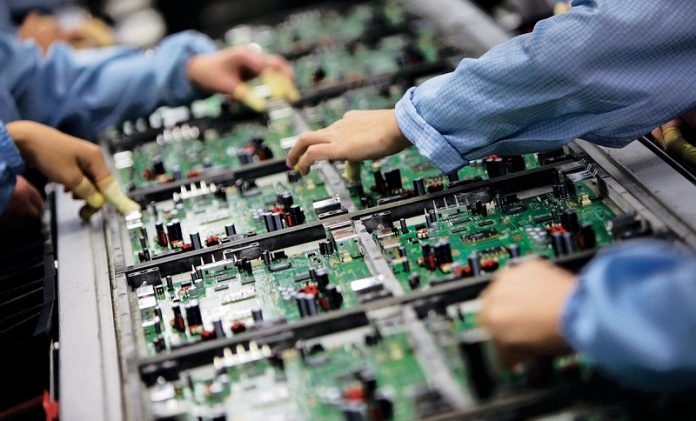The Electronics Industry is expected to regain the lost ground in the current year through a special focus on digital initiatives, emerging trends, change in consumer behaviour as well as the impetus to ramp up exports and domestic manufacturing activities.
Exports of electronics goods by India reached an all-time high in December last year. Mobile phones accounted for most of these exports by this period. It is a clear indication that the industry is overcoming the unprecedented challenges brought by the COVID 19 and is on the path of regaining.
In a boost to the government’s make in India programme, international consumer electronics giants like Samsung, LG, Panasonic and others have started exporting products to developed nations such as the US, South Korea, Japan, France and Germany.
The government announced its game-changer PLI scheme last year, which has brought about a turn around in the whole situation. The scheme offers 4-6% cash incentives on mobile phones manufactured in India for the next five years. The first companies approved under the mobile phones PLI scheme are expected to produce products worth ₹10.5 trillion in the next five years, of which approximately 60% will be exported. India also extended the PLI scheme to IT products which is expected to add ₹2.45 trillion to the country’s electronics exports in the next four years.
In the Union Budget 2020-21, the Finance Minister announced a scheme to boost mobile, electronic manufacturing and semiconductor packaging under the theme of economic development. The auto sector is likely to get a major thrust by the scheme. The electric vehicle market alone presents an opportunity worth nearly $206 billion by 2030. It will help electric vehicle manufacturing, promote automotive electronics and will encourage newer technologies like connected platforms to mushroom in the Indian auto sector. Plans to encourage manufacturers of mobile phones and semiconductors will support the development of the EV ecosystem and supply chain.
Domestic consumers are seeking a value proposition, having a comfortable, convenient, and connected experience to support their lifestyle. Accordingly, the companies in India continue to introduce products based on new technologies to establish themselves even more firmly in the domestic and export segment by tapping the emerging demand from urban, semi-urban and rural markets and also to cater to export markets.
Taking a major step to boost exports, the Government has decided to extend the benefit of the Scheme for Remission of Duties and Taxes on Exported Products (RoDTEP) to all export goods with effect from 1st January 2021. The RoDTEP scheme would refund to exporters the embedded Central, State and local taxes that were so far not being refunded and were, therefore, placing our exports at a disadvantage.
To promote domestic manufacturing, five per cent duty on-chip on film, printed circuit board assembly and cell used in the manufacture of open-cell is levied that posed a temporary challenge on sourcing of components, particularly from China. The government re-imposed customs duty on import of open-cell for TVs and put restrictions on imports of finished air conditioners.
The industry took on the challenge, helped by the government’s PLI scheme to reduce India’s dependence on China, and is creating a base for domestic component manufacturing.
The ESDM ecosystem is increasingly progressing, the policies are at its place, technology and FDI is already on their way, manufacturing capacity is being added, logistics, finances, infrastructure, power, labour and land accusation, being attended aptly. They are all a fair testimony to the pragmatic initiatives taken by the Government of India and are the steps in the right direction.
By Devendra Kumar, Editor in Chief, ELE Times








